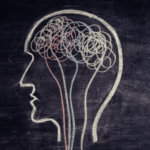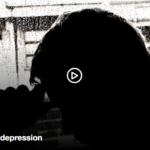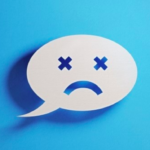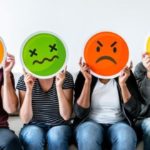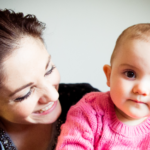Category Archives: Adult Mental Health
How to manage a panic attack
“Think of your body as an overprotective parent just trying to look after you.”
Published: Joe.ie
Author: Malie Coyne
Anxiety and panic attacks are both increasing issues in the lives of young people in Ireland. The My World Survey 2, published last year and a follow up from the original My World Survey in 2012, found that 49% of Irish teenagers suffered with mild, moderate, severe or very severe anxiety, often leading to panic attacks.
Speaking to JOE, Clinical psychologist Malie Coyne explains that “a panic attack is a sudden and intense surge of anxiety which can just hit you out of the blue. It affects many people and a lot of people don’t know what is actually happening to them.”
Strong, on-song and woke but why do Anna and Elsa have to be so skinny?
Published: Irish Independent
Author: Yvonne Hogan
Expert Opinion: Dr. Malie Coyne
“As a mum of two young girls who binged on Frozen, we are eagerly awaiting its sequel. Whilst there has been much discussion about the behavioural characteristics of both Anna and Elsa, who each display strong personalities in their own right, it is a shame that once again we have stick thin figures with unrealistic features, which are not representative of the norm.”
“Anything that children are exposed to at a young age can have an influence on their perception of the world, on their emotional and social development, and on what they perceive as a “desirable” way to look, especially young girls. However, it’s all about the balance between those influences and the influences from their parents. The most importance influencer during childhood is the child’s relationship with their parent. As long as the parent is explaining to their child that the characters they see on screen are not realistic images (nor are they attainable just as Elsa’s magic isn’t!) then this can lessen the impact on their young impressionable brains and allow us all to enjoy the film for what it is.”
Do you suffer from ‘female fury’? Here’s how to make it work for you
Published: Irish Independent
Author: Julia Molony
Expert Opinion: Dr. Malie Coyne
“being assertive is vital to your emotional well-being,” Coyne stresses. People who lack assertiveness can find themselves holding in anger which ends up coming out in burst of anger that are inappropriate towards other situations,” she says. “Anger comes from an unmet need. So if you are not able to express your need, it will impact you in a really significant way. Apart from anxiety and depression and stress and all the physical stuff, I think your sense of self is hugely impacted. Because you are walking around the world not getting your needs met.”
There is a cultural aspect to this too, and assertiveness, Coyne believes, is a skill that a lot of Irish people need to learn. “I think assertiveness is something that people really struggle with. I’m half-Dutch and in Holland I find that there’s less of this people-pleasing, ‘I’m grand, I’m grand’… there, if you’re pissed off, you’re pissed off and that’s OK. In Ireland, you just say you are fine.”
Depression – Interview on Newstalk – Ciara Kelly
Discussing a heartbreaking email written by a lady suffering from major depression who needed advice on recovery, I contacted a dear friend of mine who shared her hugely difficult experience: “Recovery needs the help of many people, but the person who leads and drives it must be YOU. Only you know how ready you are to re-enter the world”. There are some amazing contributions by those who have experienced depression on this podcast so it is well worth a listen”.
Life hacks to help stay positive
Published: Irish Examiner
Author: Geraldine Walsh
Expert Opinion: Dr. Malie Coyne
“’Negativity bias’ refers to the way in which negative experiences weigh more heavily on the brain than others. We’ve evolved to be fearful and heavily attuned to the strong possibility of a threat, in order to sustain our survival, whilst underestimating our resources to manage.
Left unchecked, the negativity bias can become a serious impediment to good mental health, as it has been found to be synonymous with anxiety and depression. Studies in psychology and neuroscience have shown that for every upsetting thing that happens, we need five positives to balance it. Knowing that not all emotions are equal gives us a sense of control over what we can do to counterbalance negativity, and this is where making a conscious effort to be compassionate towards ourselves and others comes into play.”
Read article
How would you rate your stress levels?
Published: thejournal.ie
The Health Check with Irish Life Health
Expert Opinion: Dr. Malie Coyne
“Stress can have a significant impact on relationships as the person suffering can isolate themselves from others or react defensively when under significant pressure.”
For Dr Coyne, the impact of these social connections can have an immediate impact on the very symptoms that make us feel stressed:
“A meeting of the minds or a good laugh with the right person can activate optimal levels of our ‘feel good’ brain chemicals and drastically lower stress by relaxing heart rate and blood pressure.”
Read article
Sleeping with the enemy: What is coercive control?
Published: Irish Independent
Author: Áilín Quinlan
Expert Opinion: Dr. Malie Coyne
“Because coercive control doesn’t relate to a single incident, but is rather a purposeful and sustained pattern of controlling behaviour where one person seeks to exert power, control or coercion over another in a relationship day in day out, the damage can often be deep and cumulative.”
“From an attack on a partner’s liberty and human rights, to isolating them from sources of crucial social support, to exploitation of their financial and emotional resources, to depriving them of the means needed for independence and overall well-being – the impact is far-reaching.”
Read article
Why I dumped my toxic friends (and keep my real ones closer)
Published: The Irish Times
Author: Geraldine Walsh
Expert Opinion: Dr. Malie Coyne
“Being with warm people is the ultimate mood-changer and the answer is found in your brain. A meeting of the minds, or a good laugh with the right person, can activate optimal levels of your ‘feel-good’ brain chemicals and drastically lower your stress levels, by relaxing your heart rate and blood pressure. The endorphins can act as a natural pain reliever, whilst the serotonin release can serve as an antidepressant or mood lifter without the side effects.”
Read article
The rise of steroid use: Irish men are feeling pressure to get a ripped Love Island body
Published: Irish Independent
Author: Áilín Quinlan
Expert Opinion: Dr. Malie Coyne
News that a physically fit, sporty adolescent, had died from severe brain-swelling, triggered by a muscle-building steroid, sent shock waves across the country.
Earlier this month, the Coroner for the case said he was satisfied that that the cause of the death of 17-year-old Luke O’Brien-May from Kilmallock, Co Limerick, was linked to the ingestion of the steroid, Stanozolol.
Read article
The ins and outs of being an introvert
Published: Irish Examiner
Expert Opinion: Dr. Malie Coyne
Geraldine Walsh was never shy as a child, rather an introvert. That has its pros and cons as it’s followed her into parenthood.
When I was in school a teacher remarked to my mother, “Geraldine is very shy. She never puts her hand up in class.”
My mother was not impressed. Having never liked the term ‘shy’, since it tends to come across as a negative trait, she retaliated with, “My daughter is not shy. She is quiet, reserved, and listening. She is taking everything in, watching and learning.”
As a child, I was quite happy to let my more extroverted friends take the limelight. But I was not shy.
Read article
From CBT to CFT: Therapy explained by the pros
Published: RTE Lifestyle
Expert Opinion: Dr. Malie Coyne
Feeling stressed? You’re not alone. RTÉ’s new two-part series, Stressed, looks at the science of stress and how it’s impacting negatively on Irish society.
Catch up on episode 1 of 2 on the RTÉ Player now. watch the second episode tonight on RTÉ One at 10.15pm.
During the show, we’ll get the results of the ‘How are You Ireland?’ survey of mood and well-being – developed by the Science Foundation Ireland Insight Centre for Data Analytics in UCD.
Throughout the show, you may hear words like ‘mindfulness’ and ‘anxiety’ or terms such as ‘CBT’ and ‘CFT’. To help break down all this jargon, we have Psychotherapist and Counsellor Siobhan Murray and Clinical Psychologist Dr Mallie Coyne.




